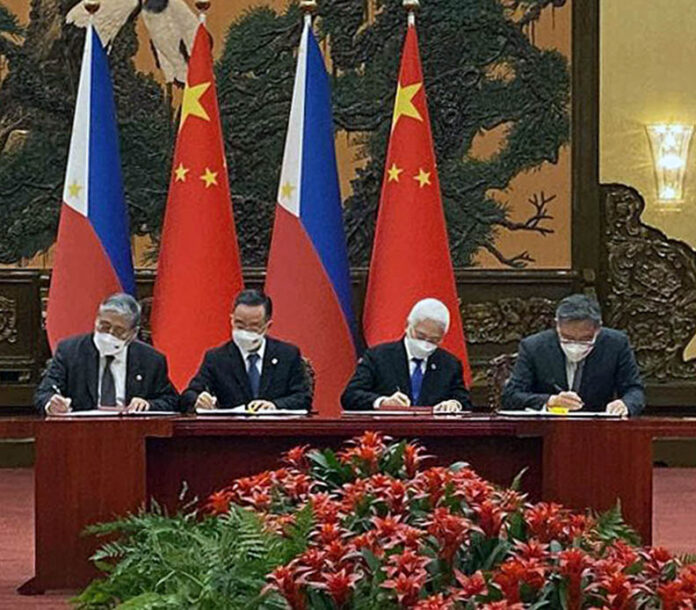-
President Ferdinand Marcos Jr.’s three-day state visit to China has yielded a memorandum of understanding on e-commerce cooperation that both sides signed on January 4
-
The Department of Trade and Industry says the MOU has identified three areas of cooperation: promoting trade in products and services; business exchanges between MSMEs, e-commerce platforms, start-ups, and logistics service providers; and sharing best practices and innovations in utilizing e-commerce
-
According to DTI, a Working Group on Electronic Commerce will serve as the focal point of coordination and the main source of information
-
Google Temasek and Bain & Company has identified the Philippines as one of the frontrunners in digital economy in 2022
Manila and Beijing signed an e-commerce pact on January 4, the second day of President Ferdinand Marcos Jr.’s three-day state visit to China, according to the Department of Trade and Industry (DTI).
The Memorandum of Understanding on Electronic Commerce Cooperation was signed by Trade and Industry Secretary Alfredo Pascual and Chinese Minister of Commerce Wang Wentao during their meeting on the sidelines of the President’s meeting with his Chinese counterpart, President Xi Jinping. The signing was witnessed by Marcos Jr. as part of his state visit.
In a statement, DTI said the MOU identified three areas of cooperation:
- Promoting trade of high-quality featured products and services;
- Pursuing business exchanges between MSMEs and e-commerce platforms, start-ups, and logistics service providers; and
- Sharing of best practices and innovative experiences in utilizing e-commerce.
Both the Philippines and China are set to cooperate to create an enabling environment for the development and growth of e-commerce on the basis of mutual benefits, the statement said
“This agreement will facilitate the sharing of experiences, best practices, critical information, and policies related to trade and e-commerce,” Pascual said.
“We look forward to interventions that will promote consumer and merchant protection, intellectual property, data security, and privacy laws. This MOU will be beneficial in building the capacity of our local businesses to cope with the modernizing business sector.”
The trade chief added that the MOU will put into also operation Agenda #17 of the e-Commerce Philippines 2022 Roadmap that concerns enhancement of cross-border cooperation and market access through trade agreements and economic cooperation programs with major e-commerce trading partners.
The MOU opens doors for possible collaboration between the Philippines and China in undertaking joint case studies and capacity-building programs to enhance the knowledge and skills of MSMEs and maximize the potentials of e-commerce, DTI said.
Research institutions, industrial organizations, and local governments are also encouraged to utilize e-commerce as a means to develop cooperation, it added.
A Working Group on Electronic Commerce will be established to serve as the focal point of coordination and the main source of information.
In 2022, Google Temasek and Bain & Company identified the Philippines as one of the frontrunners in digital economy, together with Vietnam. The study reported that the digital economy is expected to grow twice as fast as the GDP through 2030.
RELATED READ: SMEs sees e-commerce growth under ‘new normal’





